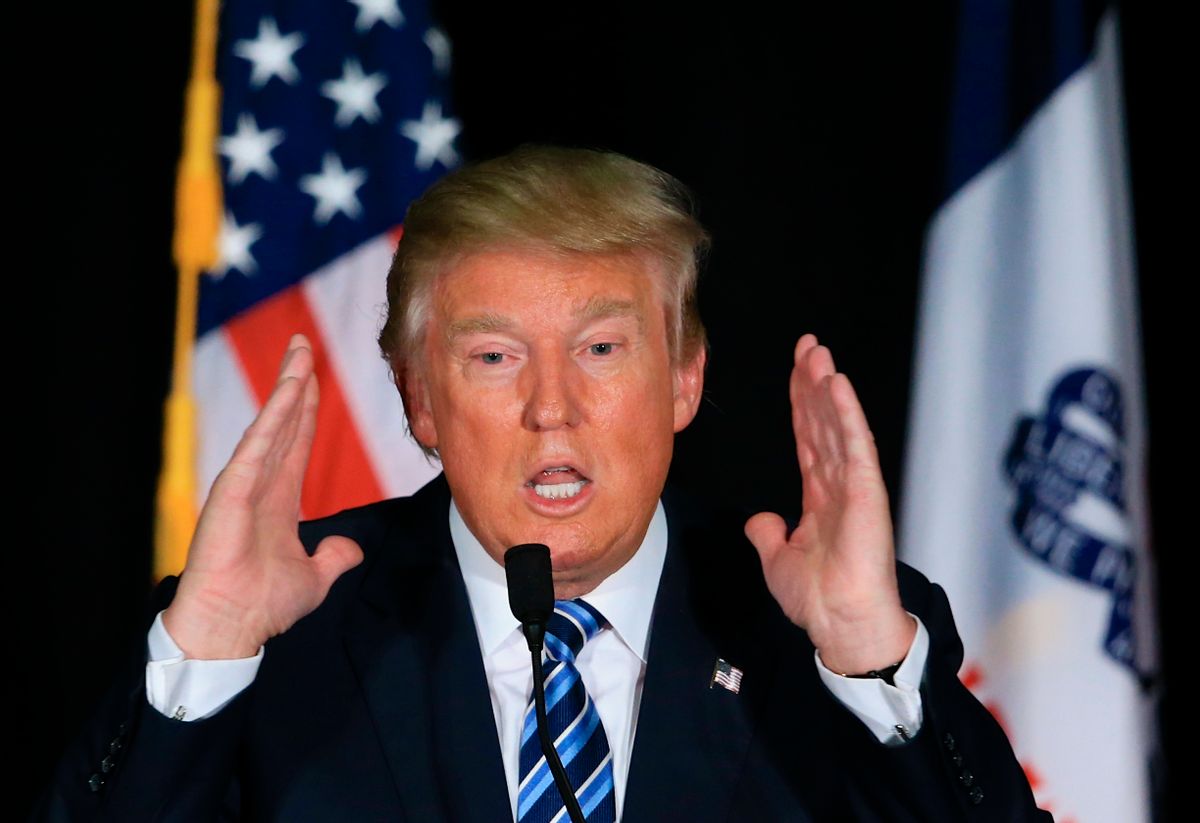The big news of the morning is a revolt of the conservative intelligentsia against Donald Trump’s 2016 candidacy, as laid out in a long National Review editorial and attendant “symposium” of conservative activists and thinkers who can no longer abide Trump’s dominance of the presidential field. The argument the magazine’s editors make against the Republican frontrunner is standard anti-Trump fare – he’s not a “real” conservative, his policy knowledge has the depth of a kiddie pool, he’s a vulgar lout – but their message is stomped on to a certain degree by the right-wing luminaries they selected to help them deliver it.
They whack Trump for espousing a “free-floating populism with strong-man overtones” and call him a “huckster,” while also turning over column space to Glenn Beck, the conservative movement’s preeminent populist huckster. They fault Trump for his “pettiness and lack of basic civility,” and then invite you to read a short piece by Erick Erickson, who famously called a Supreme Court justice a “goat-fucking child molester.” It’s tough to argue that Trump has qualities that reflect poorly on conservatism when you surround yourself with people who find success within the movement because they possess those same qualities.
The larger problem with the National Review’s anti-Trump crusade is, as the New Republic’s Jeet Heer writes, that the magazine assumes no ownership of a phenomenon they helped create. Heer goes deep into National Review’s history and points out that the magazine has played a critical role in nudging along the sort of white identity politics that fuel Trumpism. But you don’t even need to look that far back to find examples of National Review enabling the curious and toxic politics of Donald Trump.
When Trump announced his candidacy back in June, he provoked an immediate avalanche of criticism for saying in his rambling announcement speech that immigrants from Mexico are rapists and drug dealers. The condemnations came rolling in from all directions, but one prominent conservative contorted himself wildly to author a semi-defense of Trump’s allegation about Mexican immigrants: National Review editor Rich Lowry. In a column for Politico headlined “Sorry, Donald Trump Has A Point,” Lowry stung Trump for being crude and a generally disgusting person, but also argued that there “there was a kernel” in Trump’s comments “that hit on an important truth that typical politicians either don’t know or simply fear to speak.”
The “kernel” that Lowry identified was that Mexican immigrants tend to have low levels of education – an argument Trump didn’t actually make. Having twisted Trump’s words to turn them into something less awful than they actually were, Lowry wrote this:
For all its crassness, Trump’s rant on immigration is closer to reality than the gauzy clichés of the immigration romantics unwilling to acknowledge that there might be an issue welcoming large numbers of high school dropouts into a 21st-century economy.
Consider that conclusion and the intellectual gymnastics Lowry had to perform to arrive at it, and contrast it with what Lowry’s magazine wrote about Trump this morning:
Some conservatives have made it their business to make excuses for Trump and duly get pats on the head from him. Count us out. Donald Trump is a menace to American conservatism who would take the work of generations and trample it underfoot in behalf of a populism as heedless and crude as the Donald himself.
What has changed, of course, is that back in July no one really thought Trump was anything more than a short-lived novelty, and so conservatives felt comfortable sidling up to his anti-immigrant barking because it more or less aligned with their own views. Now that’s he’s a genuine threat to win the Republican nomination, these same conservatives are finding themselves aghast at the Trump phenomenon and unwilling to grapple with the fact that they helped bring it about.


Shares